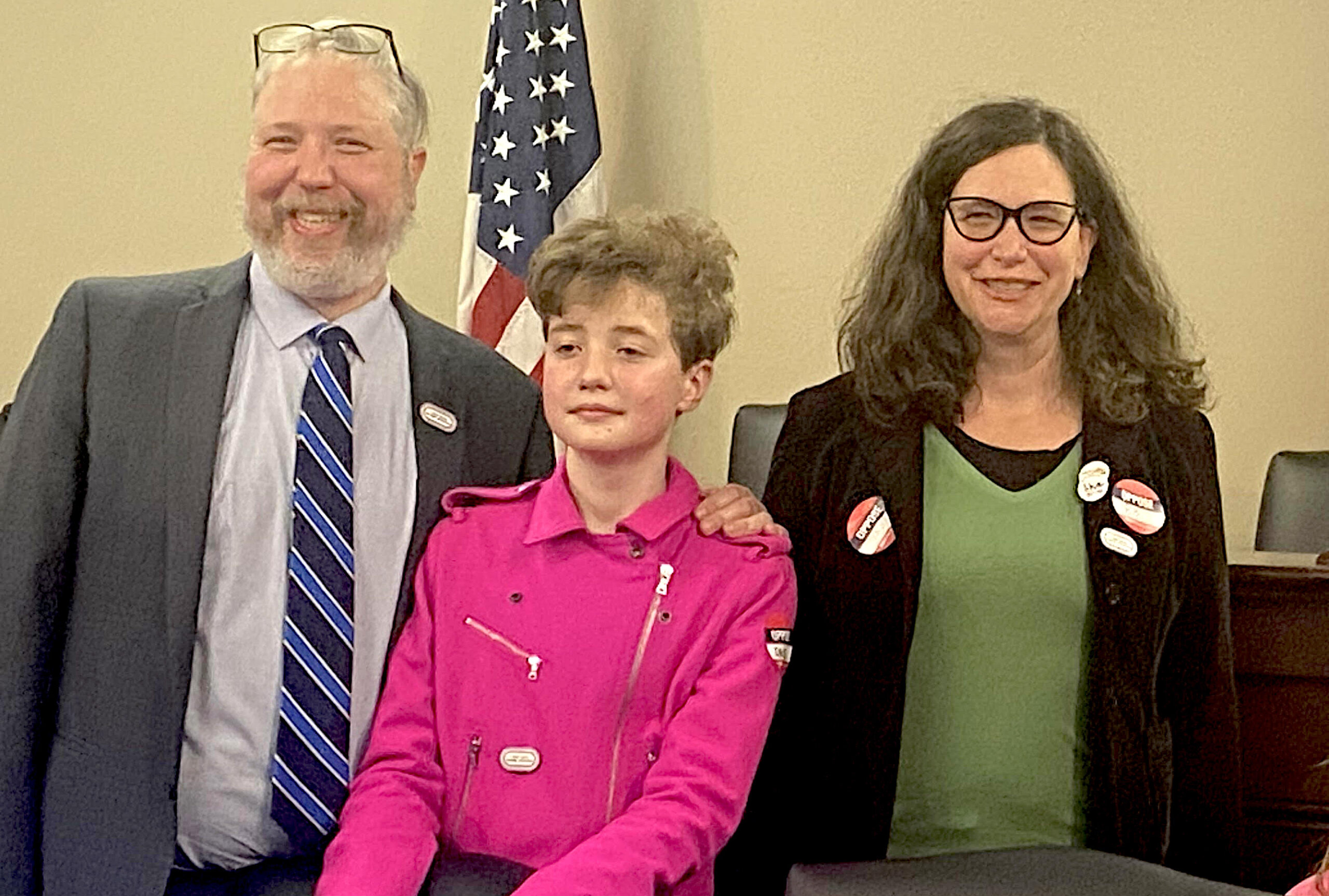Kentucky lawmakers forced a trans sports ban through its legislature this week despite the fact that there’s only one known trans student athlete in the whole state.
On April 13, Kentucky state legislators overrode an April 7 veto from Gov. Andy Beshear striking down a bill preventing trans girls from competing on middle and high school sports teams that align with their gender identity. In a statement, the Democratic governor said Senate Bill 83 “most likely violates the equal protection rights afforded by the United States Constitution because it discriminates against transgender children seeking to participate in girls’ or women’s sports.”
“Transgender children deserve public officials’ efforts to demonstrate that they are valued members of our communities through compassion, kindness, and empathy, even if not understanding,” he wrote last week.
But despite Beshear’s veto, Republicans bypassed his objections with a simple majority of both houses of the legislature. The GOP controls a supermajority in both the Kentucky House and Senate, and the veto override passed easily in both: 72-23 and 29-8, respectively.
Supporters of SB 83 claim the legislation is about preserving the integrity of women’s sports, which they claim is threatened by trans inclusion.
“Boys have athletic advantages even before puberty in cardiovascular endurance, muscular strength, muscular endurance, speed, agility and power tests,” said state Sen. Robby Mills, the bill’s sponsor, in comments reported by Spectrum News 1 earlier this year. “A lot of time and effort is put into achieving a certain level of mastery in a sport and it would be crushing for a lady to train her whole career to have it end up competing against a biological male in the state tournament or state finals.”
“Kentucky’s a national embarrassment today, and it’s shameful that lawmakers would prioritize attacking one trans seventh grader, rather than the real issues facing Kentuckians.”
Opponents of the new law, which is set to take effect in July, counter that it only serves to increase the scrutiny directed toward an already marginalized population. The American Civil Liberties Union (ACLU) of Kentucky calls SB 83 a “solution in search of a non-existent problem that is rooted in hate and unconstitutional.”
“Transgender and non-binary Kentuckians still have rights and are protected from discrimination under the U.S. Constitution and other federal and state laws,” says Samuel Crankshaw, a spokesperson for the legal advocacy group, in a statement. “Schools and athletics organizations must follow these laws and not exclude transgender students from participating fully in school activities.”
LGBTQ2S+ advocates also claim that SB 83 is unnecessary because very few Kentucky trans youth even compete in school athletics. Chris Hartman, executive director of the Fairness Campaign, says the only trans student athlete he is currently aware of is 12-year-old Fischer Wells, a middle school field hockey player. He worries that bills targeting trans youth create “isolation” and will prevent other students from feeling safe and comfortable being themselves.
“Kentucky’s a national embarrassment today, and it’s shameful that lawmakers would prioritize attacking one trans seventh grader, rather than the real issues facing Kentuckians,” he tells Xtra. “It’s a sad day in our Commonwealth.”
Wells, a student at Westport Middle School, testified against SB 83 before the Senate Education Committee in February. She helped kickstart the field hockey team at her Louisville school after there was no option for girls to play, but as a result of the trans sports ban, she will no longer be able to compete alongside her teammates.
“It’s disgusting that this bill is even suggested,” she said in comments reported by the Kentucky newspaper Courier-Journal.
Although it’s unclear if other Kentucky trans students are also competing in school sports, even qualifying to play for a school team is extremely difficult due to burdensome requirements imposed by the Kentucky High School Athletic Association (KHSAA). The KHSAA guidelines mandate that trans athletes must undergo gender-confirmation surgery prior to participating on sports teams that align with their gender, which bars the vast majority of youth from competition.

Credit: Courtesy of Fairness Campaign
Despite the fact that few proponents of proposals like SB 83 have been able to cite cases in which trans inclusion in sports has posed an issue for local schools in their area, Kentucky is now the 15th U.S. state to limit trans student participation in athletics. It’s at least the fourth to do so this year following Arizona, Iowa and Utah, all of which are GOP-led states. Utah’s governor, Spencer Cox, also vetoed his state’s bill but state lawmakers pushed it through.
More trans sports bans are likely to be made law across the U.S. this year amid an unprecedented nationwide attack on LGBTQ2S+ rights. Indiana legislators are poised to override the veto of their governor, Eric Holcomb, who claimed that supporters of the state’s version of the bill hadn’t proven it was necessary.
Hartman says he worries that SB 83’s enactment is just the start of even greater attacks on queer and trans Kentuckians over the next year. More than 240 bills targeting rights and protections for LGBTQ2S+ people have been proposed in the U.S. this year, and he worries that a bill like Florida’s controversial “Don’t Say Gay” law or Alabama’s new statute criminalizing doctors who treat trans youth are coming next.
Kentucky lawmakers have already pushed seven anti-LGBTQ2S+ bills this year, including restrictions on trans youth medical care and affirming education in schools. Hartman says that opponents of equality have been “trying everything.”
“It started with the bathroom issue and then they started figuring out, ‘Well, that’s not working, what else can we do to try to gain a foothold in restricting trans kids’ access to all aspects of school life?’” he says. “They found that foothold, unfortunately, in school sports, but they’re definitely not going to stop there. That is what is so frightening: once they gain an inch, they’re really going for a mile.”


 Why you can trust Xtra
Why you can trust Xtra


